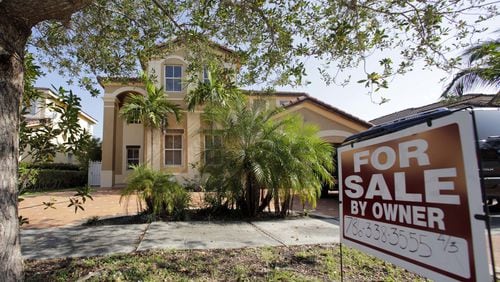Home values in metro Atlanta keep rising, but the pace of increase has fallen behind the national average, according to a much-watched national survey released Tuesday.
The average price of a home in the metro area rose 5.6 percent during the past year, compared to a 5.8 percent U.S. average, the S&P/Case-Shiller House Price Index showed. Case-Shiller calculates a three-month average of prices across the country, but does not include new construction.
Experts continue to warn that the market’s overall strength, at least as reflected in price gains, is a problem in the lower price tiers.
“While the housing market looks to be recovering, these high prices impact the affordability of homes, directing the strongest headwinds towards starter-home buyers,” said Cheryl Young, senior economist for San Francisco-based Trulia, an online housing data resource.
Home prices in metro Atlanta rose 0.4 percent in February, the latest month in the survey, or 0.8 percent adjusted for seasonal trends.
Case Shiller’s numbers are somewhat more modest than the recent reports from some other sources. For example, Re/Max of Georgia reported Atlanta prices climbing in double digits during the past year.
Whatever the methodology and precise figures, there is general consensus that the market is strong, but not smooth.
Imbalances continue to skew the Atlanta market. A low number of homes for sale means buyers often find themselves competing against each other. That drives up prices faster than incomes for many buyers, hurting affordability.
Atlanta’s market could be much stronger than it is, since there is a deep pool of potential buyers who are now renting, said Bruce McClenny, president of Apartmentdata.com, which collects data on apartments. “People in the home market look to rentals as their next customers.”
Yet the incentives to keep renting are getting stronger, McClenny said. “The debts that so many people have, the higher loan quality standards since the Great Recession. It made it easier to say, ‘We’re going to choose to be renters.’”
Even for those without student debt, required down payments of 10 percent or more are an obstacle for many young people, McClenny said.
“And the other thing working for rentals in Atlanta is that the housing market is just so strong.”
Average price increases, past year:
Seattle, 12.2 percent
Portland, 9.7 percent
Dallas, 8.8 percent
Denver, 8.5 percent
Boston, 7.6 percent
Tampa, 6.9 percent
Miami, 6.7 percent
San Diego, 6.5 percent
San Francisco, 6.4 percent
Las Vegas, 6.3 percent
Detroit, 6.2 percent
Chicago, 6.2 percent
Charlotte, 6.1 percent
Minneapolis, 5.9 percent
ATLANTA, 5.6 percent
National average: 5.8 percent
Top 20 metro areas: 5.9 percent
Source: S&P/Case-Shiller Home Price Index







